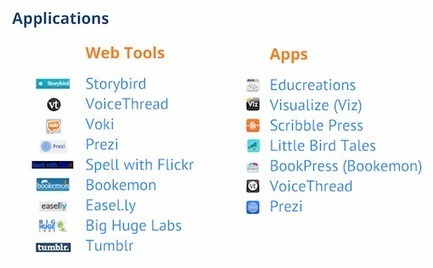Research and publish the best content.
Get Started for FREE
Sign up with Facebook Sign up with X
I don't have a Facebook or a X account
Already have an account: Login
Tech tools that assist all students to be independent learners & teachers to become better teachers
Curated by
Beth Dichter
 Your new post is loading... Your new post is loading...
 Your new post is loading... Your new post is loading...
|

Rashmi Moghe's comment,
June 16, 2013 11:21 PM
Hall, Mercer and Russac, Patricia A.(2013). Librarians, technology and the new literacies. The ASIDE blog _Innovation Design In_underneath everything is information. Retrieved from http://theasideblog.blogspot.com/2013/01/librarians-technology-and-new-literacies.html
Librarians are poised to be on the front lines in delivering instruction and resources to help in understanding various literacies. They often know whole school curriculum and have the capacity to enrich daily lessons and educational units. When librarians shape information in well-conceived, visual ways, students can become motivated, self-directed learners who create their own content and publish their own work. |













The March 2013 issue of Educational Leadership is focused on “Technology-Rich Learning.” There are a number of articles that are available on the site that you might be interested in reading. A list of some is below:
* "Students First, Not Stuff" by Will Richardson discusses how "technologies reframe learning, but educators reimagine schooling."
* "Our Brains Extended" by Mark Prensky discusses "What will humans do with their new enhanced capabilities?"
* "A Bold New Math Class" by Salman Khan and Elizabeth Slavitt discusses how "Khan Academy offers a student-centric, self-paced learning model."
* "New Literacies and the Common Core" by William Kist discusses "Strategies for learning the fundamentals of reading, writing, and comprehending in the information age."
To go directly to the page of these articles (and others):
http://www.ascd.org/publications/educational-leadership/mar13/vol70/num06/toc.aspx ;